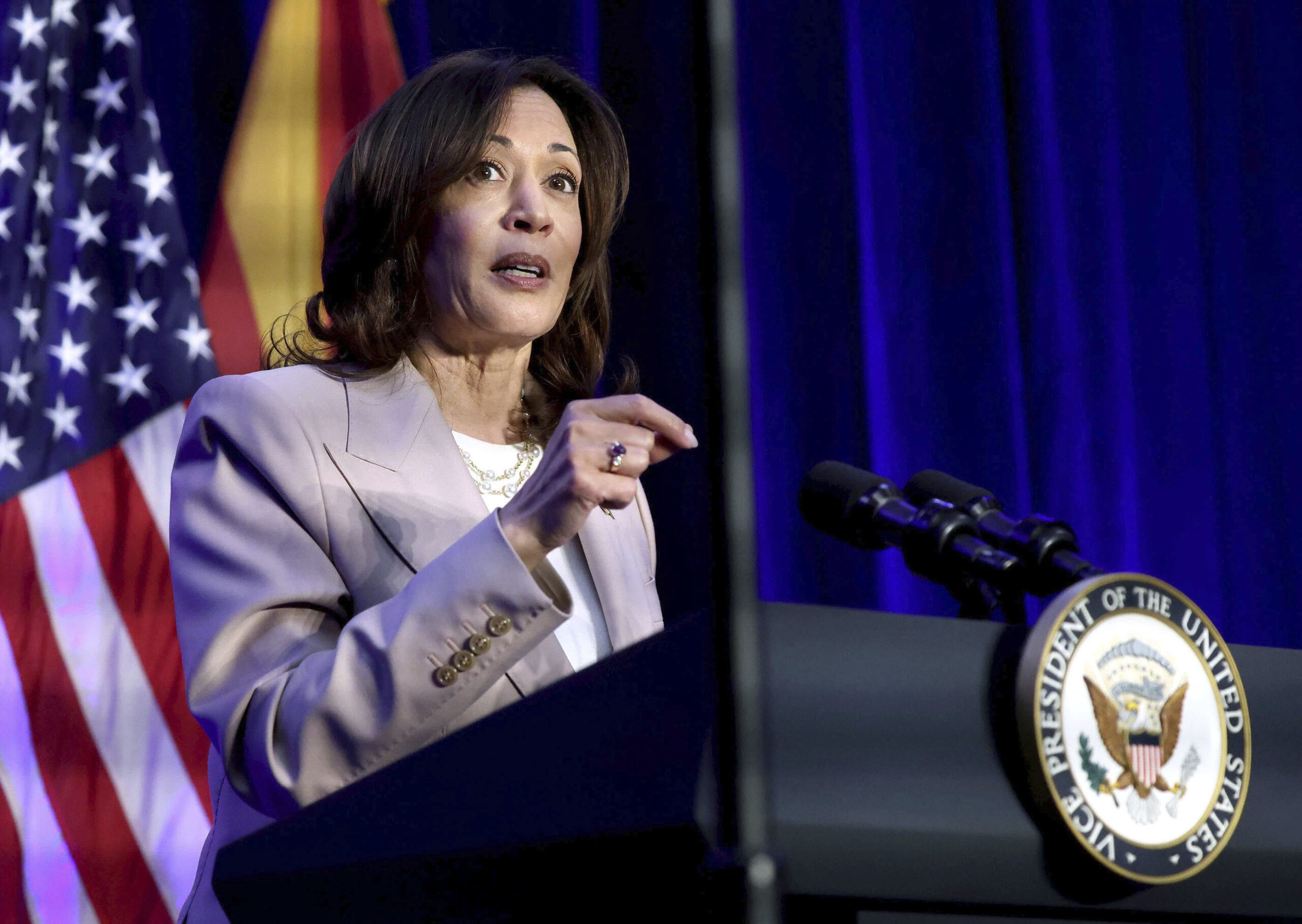

Vice President Kamala Harris will appeal to healthcare workers, an important labor union industry for President Joe Biden‘s 2024 reelection campaign, in Wisconsin on Monday, announcing two new federal government regulations while she is in the battleground state.
During a conversation with nursing home and community-based healthcare workers in La Crosse, Wisconsin, Harris, as chairwoman of the White House Task Force on Worker Organizing and Empowerment, will announce a new rule introducing minimum staffing requirements for federally funded homes and another aimed at providing those healthcare workers with a pay raise, according to the White House.
“This announcement delivers on the president’s promise in the State of the Union to crack down on nursing homes that endanger resident safety, as well as his historic executive order on increasing access to high-quality care and supporting caregivers,” a White House official told reporters Sunday.
Centers for Medicare and Medicaid Services Administrator Chiquita Brooks-LaSure and SEIU Secretary-Treasurer April Verrett will also be at Harris’s La Crosse event, held as part of the vice president’s third trip to Wisconsin this year.
Former President Donald Trump, the presumptive 2024 Republican presidential nominee, has an average one percentage point edge over Biden in Wisconsin, a state Biden won in 2020 by less than a point or 21,000 votes, according to RealClearPolitics. Harris’s announcement Monday underscores an opportunity for Biden in Wisconsin as the president tries to shore up his support among union workers and seniors. Trump’s populist economic policies and Biden’s own response to inflation have undermined the current president’s standing with the former, while the country’s aging population becoming more liberal, as opposed to more conservative, has improved it with the latter.
The nursing home minimum staffing rule will require all homes that receive federal funding through Medicare and Medicaid to have 3.48 hours per resident per day of total staffing, including a defined number from both registered nurses and nurse aides. It will also require facilities to have a registered nurse on-site 24 hours a day, seven days a week.
CLICK HERE TO READ MORE FROM THE WASHINGTON EXAMINER
The rule will require that at least 80% of Medicaid payments for nursing home care services be spent on workers’s wages. States will also be required to be more transparent about how much they pay for home care services and how they set those rates, in addition to having to create rate-setting advisory groups comprised of beneficiaries, workers, and other stakeholders to advise and consult.




